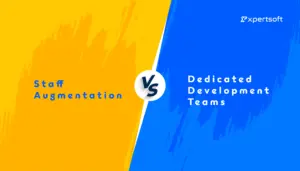Despite the recent layoffs in IT companies, the tech industry is thriving. Recent studies provided by Indeed show that tech job interests saw a yearly increase of around 35%.
Furthermore, recent studies expect the overall employment of software developers, quality assurance analysts, and testers to grow 25% from 2021 to 2031. This forecast is much higher than the standard for all other fields.
Many businesses are investing in technology and software. This fact alone suggests one can’t find a better time to be in the tech industry. Despite some talks about AI replacing developers, here are some reasons to consider the fate of the tech industry:
- The need for innovative software
- The limited lifespan of code
- Accelerated growth in technology
- Increased intricacy of projects
Enough about the future! Let’s talk about the present. According to Indeed data, here are some of the 12 in-demand tech careers:
IT Technician
This position provides general desktop and printer support or provides network support. IT Technicians make sure that everything is running smoothly.
Professional Certifications:
- CompTIA A+ Certification (click here to learn more)
This certification shows that you have the basic knowledge to support IT infrastructure. You’ll configure and sustain the most prevalent operating systems, mobile, and computer hardware.
- CompTIA Network+ Certification (click here to learn more)
This certification demonstrates the ability to design and implement networks, configure devices and manage their security.
- Microsoft Certifications (click here to learn more)
Microsoft offers a wide range of certifications to choose from.
Programmer
A programmer is an expert in a determined language. This language will act as a communication pathway between software elements. The programmer’s skills may vary, and being a programmer requires hard and soft skills.
Hard Skills:
Soft Skills:
- Adaptability
- Attention to detail
- Communication
- Multitasking
- Organization
- Patience
- Problem-solving
- Teamwork
Professional Certifications:
Depending on the language you want to invest in, there’ll be different certification paths.
See something you would like to learn? We provided some certifications you can rely on to learn more about the topic. Feel free to click on any of the languages above!
Software Engineer
A software engineer usually specializes in a type of software. It can be data extraction, network security, or video games.
Software engineers are highly skilled in maths and science. Apart from that, problem-solving is crucial to their role.
There are many paths to becoming a software engineer. Other than the usual university degrees, you can consider doing a coding bootcamp.
Coding bootcamps are something new and have become very popular in recent years. They provide a hands-on setting to learn how to code.
But these steps are only the beginning. Choosing a specialty and improving your skills are also beneficial for the role:
- Gain certifications
You can earn many different certifications from different places. Certifications are relevant as evidence of specific knowledge.
If you’re looking for this kind of education you can check Microsoft for certifications in their products. Besides Microsoft, IEEE (Institute of Electrical and Electronics Engineers) also has credentials worth checking out.
- Attend seminars
Attending conferences is a good option, not only for this case in particular but for every other area. Seminars provide an opportunity to exchange wisdom and improve with masters. Besides that, it’s also a great place to do networking!
User Experience Designer
A UX designer is responsible for developing interactive features for a product. These features must mind some guidelines to enhance the user’s experience.
To do that, UX designers must consider consumer behavior and human psychology.
Professional Certifications:
User Experience, like other tech branches, has several specializations. Here you can find ten distinct certifications you can pursue within User Experience.
- Human Factors Internacional (HFI)
- The Global Trust Association
- The Interaction Design Foundation (IDF)
- Nielsen Norman Group
- General Assembly
- Career Foundry
- The School of UX
- DesignLab
- Springboard
- Flatiron School
Eager to learn more? Not sure which route you want to pursue? 🧐
Stay tuned to our page to uncover more resources! We’ll post extra resources, with different grades and prices for you to check out!



